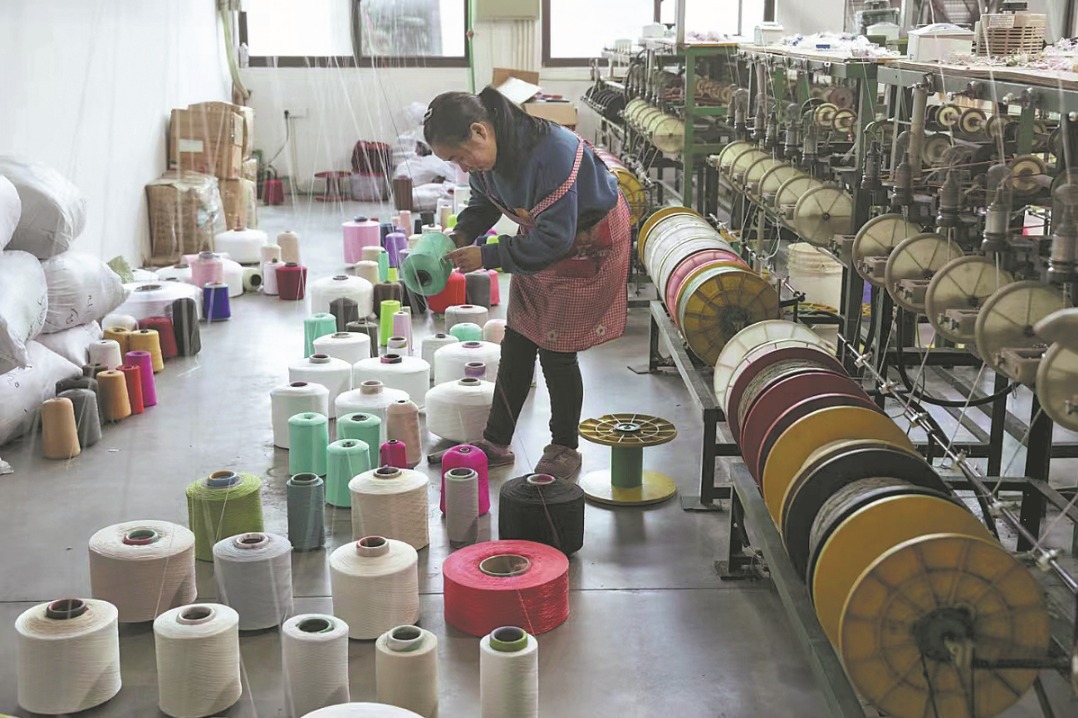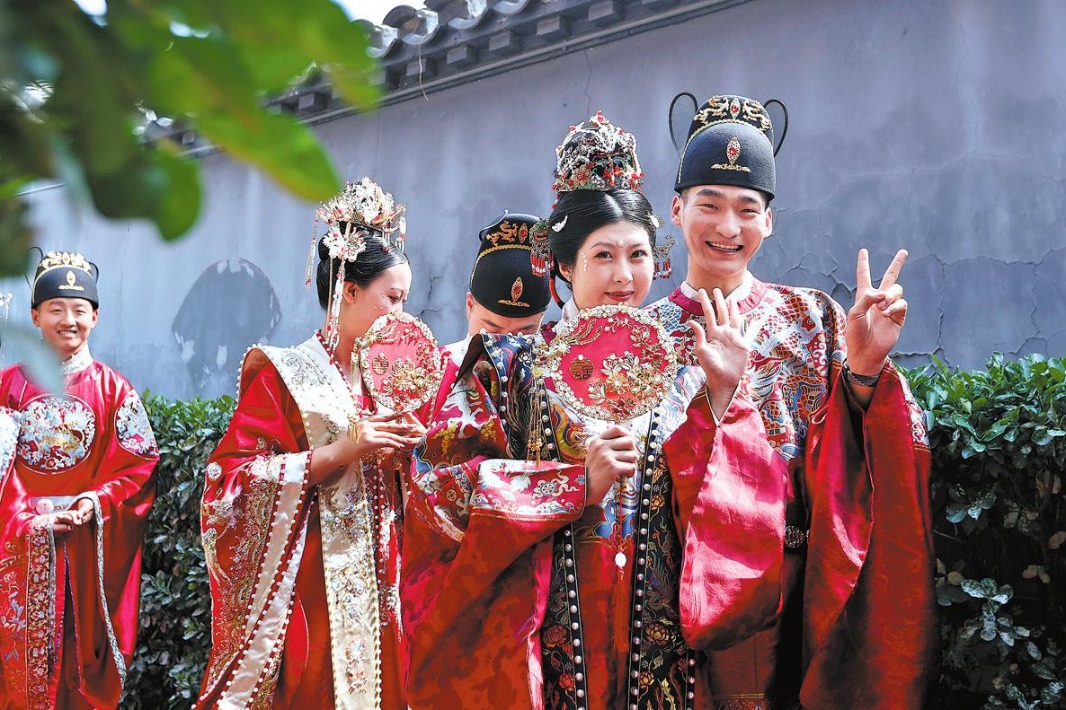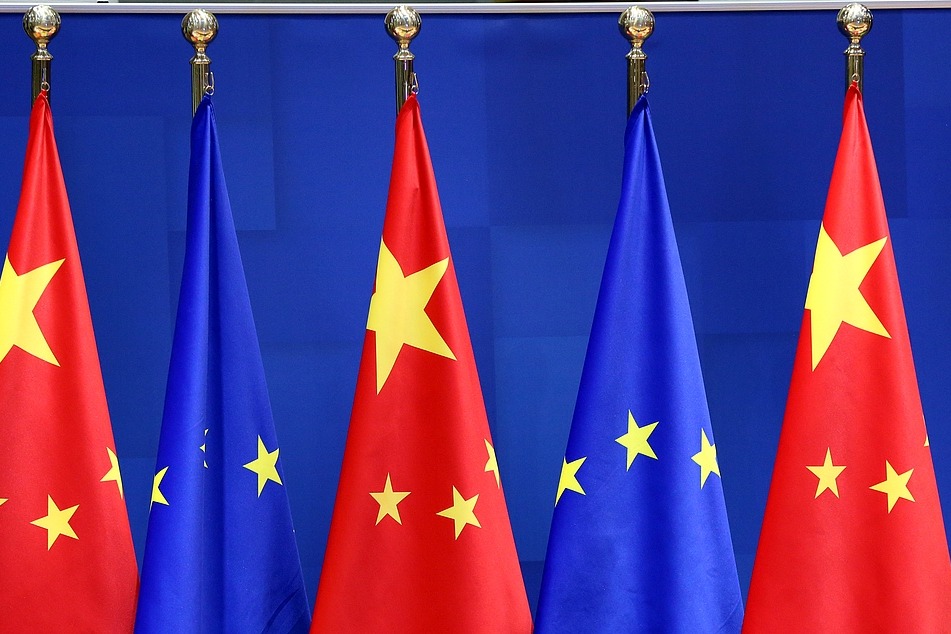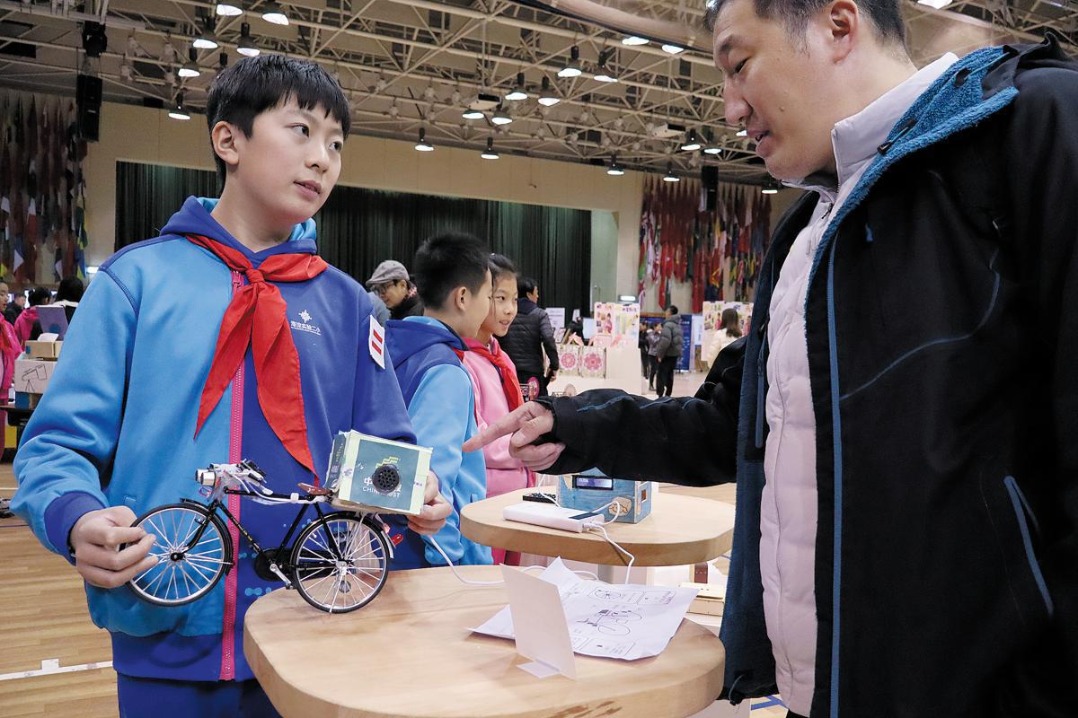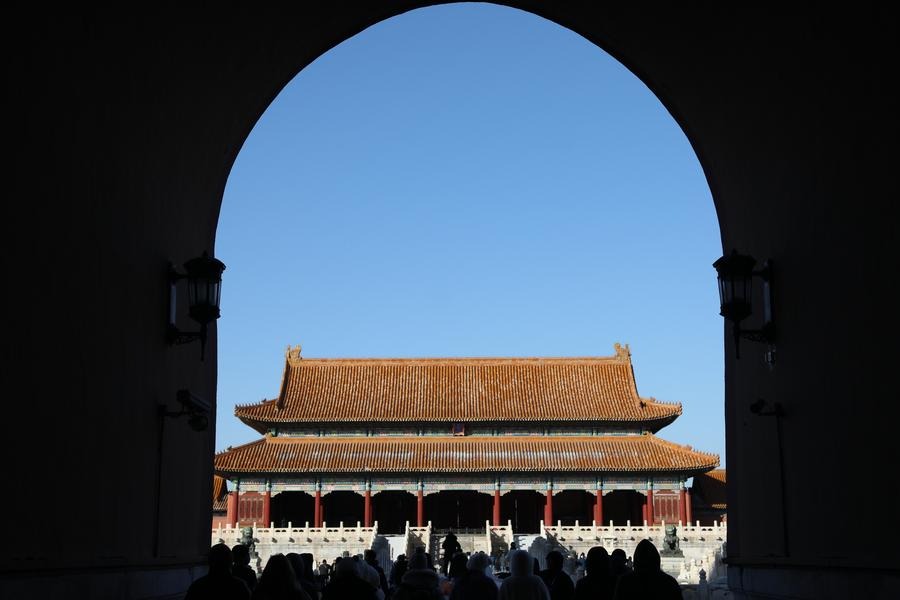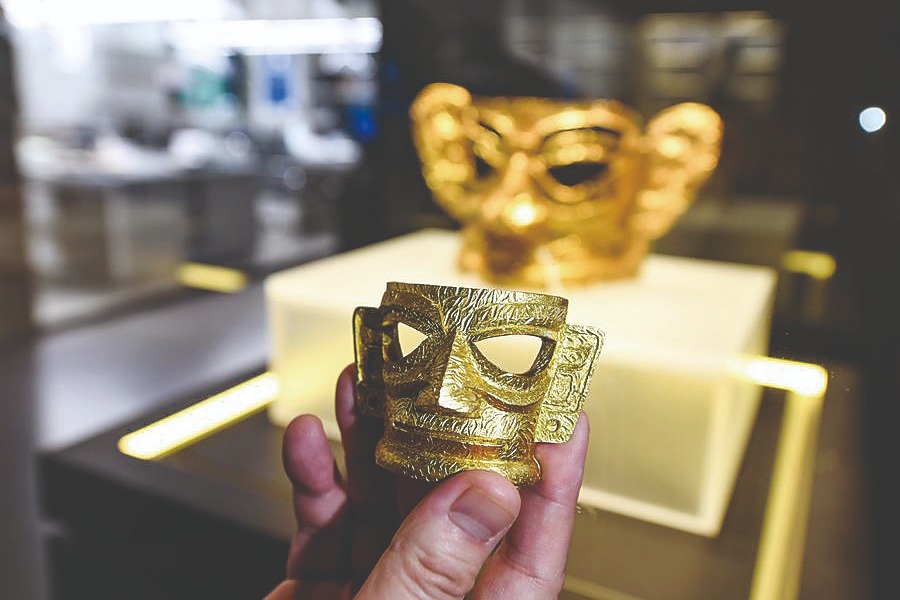US' media coverage of Zhu Yi's fall reveals its real attitude


When Zhu Yi, also known as Beverly Zhu, a figure skater, fell on the ice and finished last in the women's short program team in the 2022 Beijing Olympics on February 6, it attracted tremendous attention from almost all mainstream media in the United States.
The New York Times headlined "Criticism of Zhu Yi, a US-born skater, shows the harsh scrutiny of naturalized athletes in China" while CNN boomed "US-born figure skater Zhu Yi under attack after fall on Olympic debut for China." USA Today joined the party with "Olympic figure skater who gave up US citizenship to compete for China blasted on social media," and the Washington Post stressed "Chinese fans' posts blast US-born Zhu over falls."
Disappointed as she would have been, Zhu Yi may have been more surprised to find her fall so intensely covered by the US media, a scenario she was not accustomed to when she was in the US.
These headlines contrast the United States as Zhu's birthplace with the harsh attack on Zhu's fall on Weibo, China's Twitter, after she gave up US citizenship in 2019 to compete for China. The US media reports on Zhu's stumble stick to their usual journalistic style. They all narrated the details of Zhu Yi's fall by citing multiple news sources with identified names, including Hu Xijin, the former editor-in-chief of the Global Times. They present news sources objectively and offer sufficient background for audiences to understand what Weibo is and how US-born Zhu Yi can now represent China. It can be said that these reports are well-written and follow a rigid journalistic style, demonstrating the traditional professionalism of US media.
Meanwhile, it must be acknowledged that the US media and US journalists and editors cannot conceal their traditional "preference" for fact selection and stereotypes in covering Zhu Yi's competition disappointment. While they faithfully report the harsh comments on Weibo following her fall, for some reason they fail to mention that other comments on Weibo were more encouraging, pointing out that Zhu Yi is still just 19 years old and has never before encountered so much pressure. Some netizens argued that Zhu Yi should be urged to do better as a Chinese athlete, instead of being criticized with harsh words, while others called for tolerance and applause for Chinese athletes. All the US reports also cited Hu Xijin, the former editor-in-chief of Global Times - labeled a "state media outlet" - and his insistence that cyberbullying should not be tolerated.
However, even though the encouraging comments on Weibo are not missing from the news stories, they were downplayed in the US headlines. With this preference for selecting facts in these reports, a reader can easily get the impression that Zhu Yi was severely scrutinized on Weibo after her fall. The US media's emphasis betrays a kind of ridicule, mixed with schadenfreude. The fact that Zhu Yi turned away from the US in 2019 to compete for China is regarded as a kind of betrayal by the United States and US media.
It is common practice for athletes to take up citizenship of other countries. The USmedia do not regard a Chinese or other foreign athlete being naturalized to become a US basketball player as noteworthy. They take it for granted when a foreign athlete becomes a US citizen. So why so much coverage of Zhu Yi's fall by the US media this time around? Why such a deliberate effort to conceal their ridicule and anger toward US-born athletes, such as Zhu Yi and others, now competing for China?
As implied by the Washington Post report, this attitude reflects geopolitical clashes between the US and China, with relations at their home worst in decades. But such an attitude engenders hostility, including anger and ridicule, toward athletes who straddle the United States and China. Of course, the report did not forget to criticize China's bid to become a world power, which has sparked clashes with Washington, deliberately ignoring the fact all the conflicts with China over the past three years have been initiated by the United States.
So it is fair to turn the spotlight on the ridicule, and stereotyping, implicit in the US media reports on Zhu Yi's fall. While they maintain journalistic practice in covering a US-born athlete competing for China, US journalists and editors cannot help embedding their attitudes, perceptions and stereotypes toward China and concealing them behind their professional practice of journalism.
This does not mean that the attitudes, perception and stereotypes of US journalists and editors as concealed in professional news reports are intentional or deliberate. If you have a chance to converse with these journalists and editors, they will still say, "we are just practicing our professionalism which is universal and we do that both in the US and elsewhere in the world," as if US journalistic practice was the only possible model for journalism and that they are able to rise above the human tendency to bias and ridicule. Considering the arrogance and self-confidence of US media practices in the past and maybe in the future, this is to be expected.
However, their "reasonable" denial of unintentional attitudes like ridicule or stereotypes in news reports ignores the prevalence of these stereotypes in the global public opinion sphere. What the US media hesitate to admit is that they employ professional skills to conceal attitudes such as ridicule or stereotypes toward foreign athletes, particularly when they are US-born and now compete for China. Wanting to appear noble and global, they weave these attitudes or stereotypes into their stories under the guise of professional, objective reporting, thereby entrenching them in the US-dominated global public opinion sphere.
Guo Ke is a professor and dean at the School of Journalism and Communication. Shanghai International Studies University.
The opinions expressed here are those of the writer and do not necessarily represent the views of China Daily and China Daily website.
If you have a specific expertise, or would like to share your thought about our stories, then send us your writings at opinion@chinadaily.com.cn, and comment@chinadaily.com.cn.




















